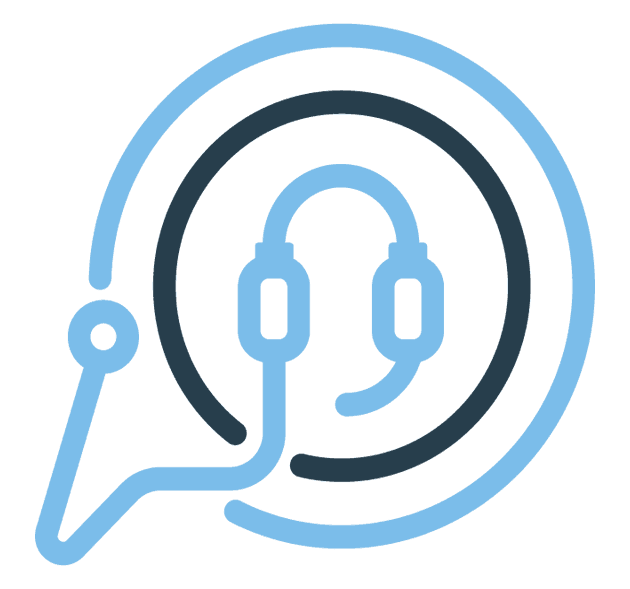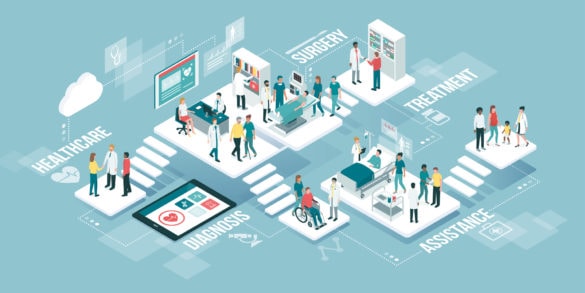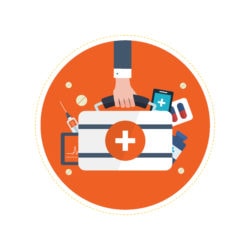Today’s medical professionals don’t have any time to waste. They need to focus as much of their efforts as possible on patient care and accuracy. Thankfully technology is constantly being developed to support those working in the healthcare industry.
The healthcare industry is constantly innovating and cloud-based tools are helping to keep up with the pace. Cloud-based tools are built to be used in a variety of medical applications, allowing healthcare providers more control over their data management. They provide a secure platform for storing patient records, billing information, and other sensitive data. With cloud-based tools, healthcare providers can also access real-time insights into patient care and outcomes. By leveraging cloud computing, healthcare professionals have access to advanced analytics and predictive modeling capabilities that help improve patient care. These cloud-based tools are designed with the specific needs of the healthcare industry in mind, helping medical teams stay ahead of trends while providing better patient care.
Cloud-based tools are revolutionizing the healthcare industry by making it easier for medical teams to manage patient records and access real-time insights into patient care. These cloud-based tools are built specifically for healthcare professionals, providing them with the agility, scalability, and security they need to succeed in the ever-changing medical landscape. Thanks to cloud-based tools, healthcare providers can provide better patient care while saving time and money.
Staying up to date on the newest apps and software can help healthcare activities of any size – from small private practices to expansive hospital networks – efficiently meet demand and operate with greater precision.
10 Cloud-Based Tools Built for Healthcare Applications
Here are a few of the latest cloud tools, apps, storage solutions and software that are currently powering the healthcare industry.
1. eClinicalWorks Cloud
Utilizing what this healthcare software provider calls the “Intelligent Cloud,” eClinicalWorks provides users with a fully integrated, cloud environment including the EMR, medical practice management (PM) platform, Healow patient check-in app, televisits, and the patient portal. It relies on Microsoft Azure data centers in order to ensure virtually unlimited data storage and memory, continual data backups and security monitoring, and technical updates. Because it’s all in the cloud, it allows healthcare providers and integrated service providers to access the data needed from anywhere and at any time. The eClinicalWorks cloud suite is certified for HIPAA privacy and security compliance; the Azure cloud it uses has also completed security certifications for HITRUST, ISO27001, PCI DSS, SOC 1, SOC 2, and SOC 3.
2. GreenwayHealth Managed Cloud
Healthcare networks that choose GreenwayHealth software get all the advantages of the cloud. Both their Intergy EMR and practice management solutions are fully cloud-based. The entire suite was designed to alleviate the burden of managing servers and upgrading software for healthcare entities. With cloud technology, it is sure to provide a secure, up-to-date, flexible platform for users that meets all the latest compliance requirements that apply to the medical field. Greenway Secure Cloud has security monitoring, 24/7 disaster recovery, reliable servers, infrastructure updates and patching, all at an affordable price.
3. Microsoft Cloud for Healthcare
This is an integrated communications and data management platform that works with Microsoft 365 and Azure. It combines video call and text messaging features, with calendars to help organize healthcare personnel and other collaborative tools. Microsoft Cloud for Healthcare helps doctors and specialists provide quality care by connecting data across existing sources. Security, compliance, and interoperability are three of the foundational qualities of this cloud platform.
4. Google Cloud Healthcare API
Combining analytics data and machine learning, Google’s Cloud Healthcare API is a secure development environment for building solutions for medical practices. This tool makes it easy to share sensitive data with new applications developed on Google Cloud. It works seamlessly with data processing, analytics, and machine learning platforms.
5. 3D4Medical
This cloud-based app was developed specifically per medical training and diagnostics. 3D4Medical makes it possible for students and doctors to see the human anatomy in minute detail and investigate the connection of organs, muscles, and other tissues. It is currently being used in university and clinical settings around the world.
6. NetApp
NetApp uses a hybrid cloud infrastructure to provide real-time data management and faster EMR operations. Specifically designed for healthcare and life sciences, NetApp aims to streamline clinical data management and is validated and certified for data security compliance. Not only does it speed up the process of accessing and using data, but it’s now implementing AI to make data analysis and diagnostics faster and more accurate.
7. healow® Cloud-Based Apps
eClinicalWorks offers a whole suite of cloud-based solutions for healthcare professionals. Their popular cloud-based EHR software delivers reliable online access to PHI and secure communications between healthcare providers and patients. In addition, eClinicalWorks has a range of apps that help providers interact with patients and improve care. For example, healow trackers allow patients to monitor blood pressure, blood sugar, physical activity, calorie intake, BMI, and sleep. healow Mom helps expectant mothers track their pregnancy and manage appointments. healow kids provides pediatricians with a way to decrease no-show appointments, communicate with parents, and limit the number of phone calls received. Recently, the company introduced healow CHECK-IN™ enabling contactless appointment confirmations and check-in and Payment Services for convenient online billing.
8. Box for Healthcare
This HIPAA-compliant cloud storage platform was developed to make sharing documents extremely easy while ensuring top-level cybersecurity. All PHI stored on Box is encrypted and and security controls conform with the most current regulations. Because it combines enterprise-grade security with advanced file-sharing, it is trusted by a number of hospitals, health insurance companies, biotech labs, and pharmaceutical corporations.
9. Medscap App
Medscape is the most popular cloud app for physicians and healthcare professionals around the globe. It delivers the latest medical news and information about new treatments and clinical innovations. It has a handy schedule of CME courses available and tracks the user’s professional education credits. The consult features puts physicians and med students in touch to crowdsource solutions for challenging patient cases and clinical treatment options. Plus, it’s free; there are no fees for downloading or subscriptions.
10. VisualDx
Is an innovative cloud tool aimed at helping physicians and specialists to improve diagnostic accuracy with concise, peer-reviewed content written by medical experts in each specialty. The app makes tons of up-to-date information and images available with a click to speed up differential diagnoses and improve patient care. VisualDX helps healthcare providers consider alternative diagnoses, confirm findings, check for drug interactions, and identify the best treatment options. It is available for desktop and mobile devices and integrates with your current EMR system.
Related article: Why Healthcare Admin Are Feeling More Burnt Out than Ever.
Medical Office Answering Service Automation & Cloud Agility
Healthcare providers can easily use cloud-based tools to integrate with and automate their medical office answering service. Automation significantly decreases the need for costly and labor-intensive manual operations, allowing healthcare providers to focus on providing quality patient care. Cloud-based tools also provide agility and scalability, which enables healthcare professionals to adjust how they manage their data in response to changing patient needs and the technology they use day to day. Healthcare practitioners also have easier access to their medical data, allowing them to make more accurate decisions and provide better patient care. By using answering services for medical offices with cloud-based tools, healthcare providers can ensure their data is secure and easily accessible, reducing the administrative burden associated with managing large amounts of medical data.
PatientCalls is a dedicated medical call-answering service provider for healthcare practitioners, facilities, and networks. We specialize in automating scheduling, call management, and patient intake for healthcare practices of all sizes and types. For more information on how our doctors’ answering service can help your practice speed up operations, contact PatientCalls today.







